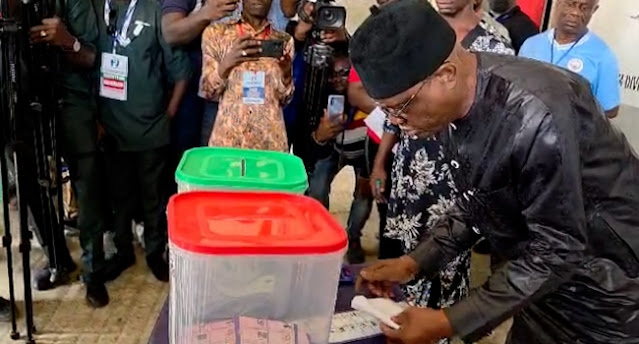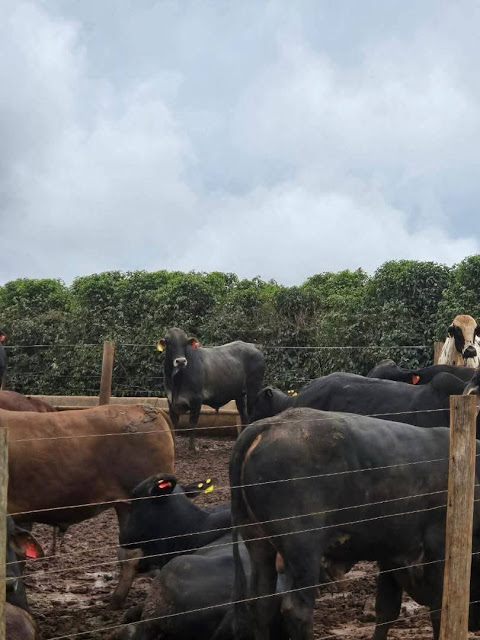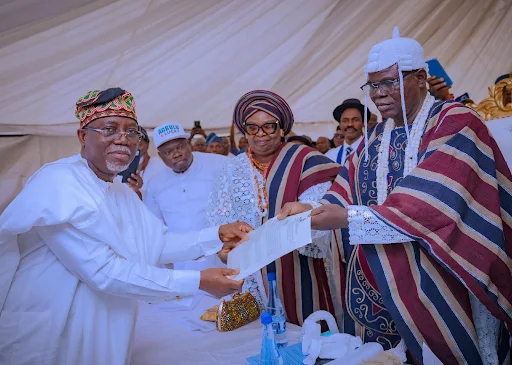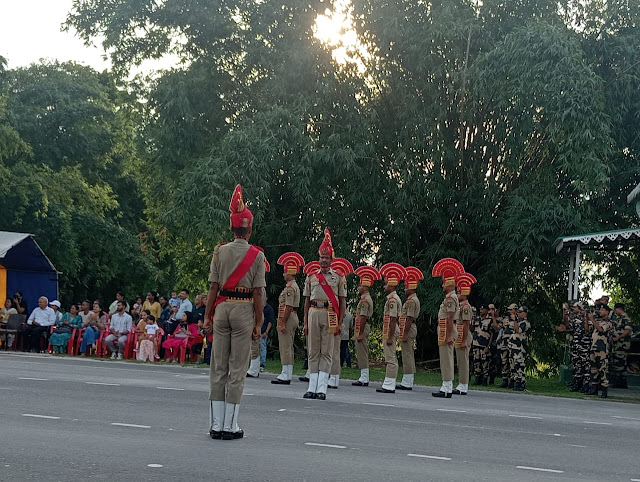Port Harcourt, Rivers State, Nigeria – On Saturday, August 30, 2025, the Minister of the Federal Capital Territory (FCT), Nyesom Wike, participated in the local government elections in Rivers State, casting his vote at his polling unit in Obio/Akpor Local Government Area. The former governor of Rivers State, a prominent figure in the state’s political landscape and a key member of the All Progressives Congress (APC), expressed satisfaction with the conduct of the polls, describing the process as peaceful and well-organized. Wike’s participation and comments come at a critical juncture for Rivers State, which has been navigating a complex political crisis marked by a state of emergency and tensions within the political class.
In a significant announcement, Wike disclosed that the emergency rule imposed in Rivers State, which had suspended the activities of the State House of Assembly, would be lifted on September 18, 2025. This development signals a return to normalcy for grassroots governance, allowing the state assembly to resume its functions and local government councils to operate fully. Wike’s remarks underscore his influence in Rivers State politics and his role in shaping the state’s trajectory as it emerges from a period of political instability.
The local government elections, conducted across the 23 local government areas (LGAs) of Rivers State, are a pivotal moment for the state, which has been a focal point of Nigeria’s political dynamics. The peaceful conduct of the polls, as highlighted by Wike, reflects the resilience of Rivers State’s democratic institutions and the commitment of its people to participatory governance. This article explores the details of the elections, Wike’s role, the implications of the end of emergency rule, and the broader political and socio-economic context of Rivers State.
The Local Government Elections: A Peaceful Exercise
The local government elections in Rivers State were conducted to elect chairmen and councillors for the 23 LGAs, a process aimed at strengthening grassroots governance and ensuring local representation. The elections were overseen by the Rivers State Independent Electoral Commission (RSIEC), which worked to ensure a free, fair, and transparent process. Thousands of voters across the state turned out to cast their ballots, with polling units opening early and security personnel deployed to maintain order.
Nyesom Wike, who voted at his polling unit in Obio/Akpor, expressed satisfaction with the electoral process, noting the peaceful atmosphere and high voter turnout. “As far as we are concerned, this election is peaceful, people are trooping out, and at the end of the day, the election has been conducted successfully and peacefully,” Wike said in a statement to journalists after casting his vote. His comments reflect optimism about the state’s ability to conduct credible elections despite its recent history of political turbulence.
The peaceful conduct of the elections is a significant achievement for Rivers State, which has experienced political violence and electoral disputes in the past. The presence of security forces, including the Nigeria Police Force and the Nigeria Security and Civil Defence Corps (NSCDC), helped to deter disruptions and ensure a smooth voting process. RSIEC’s efforts to engage stakeholders, including political parties, civil society organizations, and community leaders, also contributed to the success of the polls.
The elections saw participation from multiple political parties, including the APC, the Peoples Democratic Party (PDP), and other smaller parties. While the APC, bolstered by Wike’s influence, was seen as a frontrunner in many LGAs, the PDP, which has historically dominated Rivers State politics, also fielded strong candidates. The competitive nature of the elections underscored the state’s vibrant political landscape and the importance of grassroots governance in addressing local needs.
Wike’s Political Influence in Rivers State
Nyesom Wike’s participation in the local government elections and his comments on their conduct highlight his enduring influence in Rivers State politics. As the immediate past governor of the state (2015–2023), Wike played a transformative role in Rivers State, overseeing significant infrastructure development, urban renewal, and economic growth. His tenure was marked by projects such as the construction of flyovers, roads, schools, and hospitals, which earned him widespread support among residents.
Since his appointment as FCT Minister in 2023 under President Bola Tinubu’s administration, Wike has maintained a strong presence in Rivers State, leveraging his political clout to shape the state’s direction. His defection from the PDP to the APC, alongside other key figures, has significantly altered the state’s political dynamics, positioning the APC as a dominant force. Wike’s ability to mobilize support and influence electoral outcomes has made him a central figure in the state’s political landscape, despite his current role at the federal level.
Wike’s praise for the peaceful conduct of the elections also serves as a subtle endorsement of the APC’s efforts to consolidate power in Rivers State. His involvement in the polls, even as a federal minister, underscores his commitment to ensuring the success of the APC’s candidates and maintaining stability in his home state. However, his influence has not been without controversy, as his rivalry with his successor, Governor Siminalayi Fubara, and other PDP leaders has fueled tensions within the state.
The End of Emergency Rule: A Return to Normalcy
In a significant announcement, Wike revealed that the state of emergency imposed in Rivers State would expire on September 18, 2025, allowing the State House of Assembly to resume its functions and local government councils to operate fully. “I do know that by September 18, the state of emergency will expire, and the state assembly will come back to their job, and we will have a government at the grassroots level,” Wike stated. This development marks a turning point for Rivers State, which has been grappling with a political crisis that led to the suspension of the state assembly’s activities.
The emergency rule was imposed in response to a deepening political rift between Governor Fubara and pro-Wike lawmakers, who defected from the PDP to the APC in December 2023. The crisis escalated when 27 lawmakers loyal to Wike attempted to impeach Fubara, leading to violent clashes and the suspension of the state assembly. The imposition of emergency rule, backed by the federal government, was intended to restore order and prevent further escalation, but it also raised concerns about democratic governance in the state.
Wike’s announcement signals a return to normalcy, with the resumption of legislative activities and the empowerment of local government councils. The lifting of the emergency rule is expected to pave the way for the newly elected chairmen and councillors to assume their roles, strengthening grassroots governance and addressing local development needs. It also reflects the federal government’s confidence in the stabilization of Rivers State’s political environment, largely attributed to Wike’s influence and the APC’s growing dominance.
Political Context: A State in Transition
Rivers State has long been a political hotspot in Nigeria, given its strategic importance as an oil-rich state and a key player in the Niger Delta region. The state’s politics have been shaped by intense rivalries, particularly between the PDP and the APC, with Wike emerging as a central figure in these dynamics. His tenure as governor was marked by a fierce rivalry with his predecessor, Rotimi Amaechi, a former APC leader, which set the stage for the state’s polarized political landscape.
The defection of Wike and other PDP stalwarts to the APC in 2023, following President Tinubu’s election, marked a significant shift in Rivers State’s political alignment. The move, described as a “movement” rather than a mere defection, saw key figures such as former Deputy Governor Ipalibo Harry Banigo and several commissioners join the APC, bolstering the party’s presence in the state. The local government elections, therefore, represent a critical test of the APC’s ability to consolidate power and deliver on its promises of development and stability.
The political crisis that led to the emergency rule was rooted in tensions between Wike and Fubara, who was handpicked by Wike as his successor. The rift emerged over control of the state’s political machinery, with Wike’s loyalists in the state assembly aligning with the APC and challenging Fubara’s authority. The resolution of this crisis, facilitated by federal intervention and Wike’s influence, highlights the complex interplay between state and national politics in Nigeria.
Implications for Grassroots Governance
The successful conduct of the local government elections and the impending end of emergency rule have significant implications for grassroots governance in Rivers State. Local government councils play a critical role in addressing community needs, including infrastructure development, healthcare, education, and security. The newly elected chairmen and councillors will be tasked with implementing policies that align with the state’s development agenda and the federal government’s Renewed Hope Agenda.
Wike’s emphasis on the peaceful nature of the elections suggests a commitment to strengthening democratic institutions at the grassroots level. The high voter turnout, as noted by Wike, reflects public enthusiasm for local governance and a desire for representation that addresses local challenges. The resumption of the state assembly’s functions will further support these efforts, enabling legislative oversight and policy formulation to complement the work of local councils.
The lifting of the emergency rule also signals a return to democratic normalcy, allowing elected officials to take full control of governance at both the state and local levels. This development is expected to enhance accountability, as the state assembly will resume its role in checking the executive and ensuring that public resources are utilized effectively. For residents of Rivers State, particularly those in rural and underserved areas, the restoration of grassroots governance offers hope for improved service delivery and development.
Socio-Economic Context: Opportunities and Challenges
Rivers State, as one of Nigeria’s leading oil-producing states, plays a critical role in the country’s economy. The state’s vast oil and gas resources, coupled with its strategic location in the Niger Delta, make it a hub for economic activity. However, Rivers State also faces significant challenges, including unemployment, environmental degradation, and security concerns stemming from militancy and oil theft. The local government elections and the end of emergency rule provide an opportunity to address these issues through effective governance and policy implementation.
Wike’s tenure as governor was marked by significant investments in infrastructure, including the construction of flyovers, roads, and public facilities, which transformed Port Harcourt into a modern urban center. His administration also prioritized education and healthcare, with initiatives such as the renovation of schools and hospitals. These efforts laid a foundation for economic growth, but challenges such as youth unemployment and environmental pollution remain pressing concerns.
The newly elected local government officials will need to build on these achievements while addressing the state’s socio-economic challenges. Key priorities include creating job opportunities for youth, improving access to quality education and healthcare, and addressing environmental issues caused by oil exploration. The alignment of Rivers State with the APC-led federal government, facilitated by Wike’s influence, could unlock additional resources for development projects, particularly in infrastructure and economic diversification.
Community Reactions and Expectations
Wike’s comments on the peaceful conduct of the elections and the lifting of the emergency rule have been met with optimism by many residents of Rivers State. Community leaders, civil society organizations, and voters have expressed hope that the elections will usher in a new era of effective governance at the local level. The high voter turnout, as noted by Wike, reflects public confidence in the electoral process and a desire for change.
However, some residents and political analysts have raised concerns about the potential for continued tensions within the APC, particularly between Wike’s loyalists and those aligned with Governor Fubara. The resolution of the political crisis and the lifting of the emergency rule are seen as positive steps, but sustaining peace and unity will require ongoing dialogue and collaboration among stakeholders.
Civil society groups have called for transparency and accountability in the management of local government resources, urging the newly elected officials to prioritize the needs of their constituents. Residents in rural areas, in particular, have emphasized the importance of addressing infrastructure deficits, such as poor road networks and lack of electricity, to improve living standards.
Looking Ahead: A New Chapter for Rivers State
The successful conduct of the local government elections and the impending end of emergency rule mark a new chapter for Rivers State. Nyesom Wike’s participation in the elections and his announcement about the lifting of the emergency rule underscore his continued influence in shaping the state’s political and developmental trajectory. The peaceful nature of the polls, as highlighted by Wike, reflects the resilience of Rivers State’s democratic institutions and the commitment of its people to participatory governance.
As the state prepares for the resumption of the state assembly and the full operation of local government councils, there is an opportunity to strengthen grassroots governance and address pressing socio-economic challenges. The alignment of Rivers State with the APC-led federal government offers the potential for increased federal support, which could drive infrastructure development, job creation, and economic diversification.
However, sustaining this progress will require unity among political leaders, transparency in governance, and active engagement with citizens. Wike’s call for peace and his optimism about the elections set a positive tone for the future, but the success of this new chapter will depend on the ability of elected officials to deliver on their promises and address the needs of Rivers State’s diverse population.
In conclusion, the local government elections and the lifting of the emergency rule represent a turning point for Rivers State, offering hope for a more inclusive and prosperous future. Nyesom Wike’s leadership, both as a federal minister and a political heavyweight in Rivers State, will continue to play a pivotal role in shaping this trajectory. As the state moves forward, the focus must remain on fostering peace, strengthening democratic institutions, and delivering tangible benefits to the people of Rivers State.






